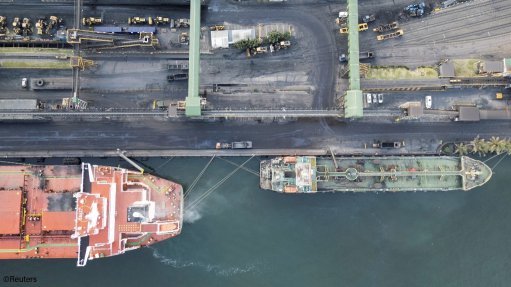Electricity and water don’t mix
The War to End All Wars’ is now more than 100 years ago. Specifically speaking, this refers to World War I. Those of you who know history will know that it hardly involved the whole of the world. It was, in fact, a war between Britain and Germany where both sides had allies. Italy fought for Britain in World War I and against Britain in World War II (interesting, but probably insignificant, unless you are Italian.) World War I was known as ‘The War to End All Wars’; however, 104 years later, we are as at war as we have ever been.
Electrical engineering was just a twinkling in its father’s eye in 1914, and had greatly increased by 1918, when the war ended. Before the war started, radio communication hardly existed; by the time it ended, there were regular radio communications throughout the world. As previously written, electrical engineering, per se, has not grown very quickly in the last 100 years. There are several locations where electrical engineering resources are now over 50 years old. The oldest electrical installation in commercial use in South Africa was installed in 1928 and the South African Navy dockyard has substations which are over 60 years old. There are similar substations which are half-a-century or more old throughout Southern Africa.
The question is: What is going to happen to these? Regarding medium voltage (6 600/11 000 V), some circuit breakers hardly operate at all; they operate in a backup mode and thus only trip if a primary substation fails to trip. This happens very infrequently. In some parts of South Africa, notably the Highveld, the rusting of mild steel is very rare. As a result, the average Highveld circuit breaker doesn’t wear out – it is closed and passes current, which occasionally stops flowing when a main circuit breaker trips. The weather is never so inclement that the substation rusts. The mechanical operation occurs so seldom that the circuit breaker, to all intents, resembles the state it was when it was installed.
The result of this is that some municipalities and factories have circuit breakers which, technically, could outlast the people employed there. We can easily conceive of a situation whereby a young person joins an organisation in the same year that a circuit breaker happens to be installed. We then find that when the mature adult retires, the circuit breaker is still there and operating.
There is no precedent for what will actually happen. In point of fact, South Africa and many other developing countries have an amount approaching the value of the national debt, in circuit breakers. If we rely on the hope that they will continue to function throughout our lifetime, we might believe that this will finally make the steel and copper within the circuit breakers so valuable that it can be removed and replaced at a profit. The downside of this belief is that the removal (but nonreplacement) might occur unofficially and unexpectedly.
The resulting power interruption will require expense to be replaced in a hurry, so any value that the original equipment had will fall away. It may be that the power providers decide to embark on a process of systematic replacement themselves. Again, the problem of this is that contracts for the replacement might result in the replacement of equipment which doesn’t need to be replaced and which suddenly reappears in some Far Eastern country performing useful service to a foreign power.
A bit of thought shows that the problem has become greater and greater the more you think about what to do with the ageing electrical equipment and how to do it. In this way, we find ourselves very much in the same situation as occurred after World War I; there was left over a great amount of explosives and weapons which had to be scrapped or otherwise disposed of. In the end, a lot of it was just thrown into the ocean and nobody was really told where. That won’t happen to electrical equipment.
Article Enquiry
Email Article
Save Article
Feedback
To advertise email advertising@creamermedia.co.za or click here
Press Office
Announcements
What's On
Subscribe to improve your user experience...
Option 1 (equivalent of R125 a month):
Receive a weekly copy of Creamer Media's Engineering News & Mining Weekly magazine
(print copy for those in South Africa and e-magazine for those outside of South Africa)
Receive daily email newsletters
Access to full search results
Access archive of magazine back copies
Access to Projects in Progress
Access to ONE Research Report of your choice in PDF format
Option 2 (equivalent of R375 a month):
All benefits from Option 1
PLUS
Access to Creamer Media's Research Channel Africa for ALL Research Reports, in PDF format, on various industrial and mining sectors
including Electricity; Water; Energy Transition; Hydrogen; Roads, Rail and Ports; Coal; Gold; Platinum; Battery Metals; etc.
Already a subscriber?
Forgotten your password?
Receive weekly copy of Creamer Media's Engineering News & Mining Weekly magazine (print copy for those in South Africa and e-magazine for those outside of South Africa)
➕
Recieve daily email newsletters
➕
Access to full search results
➕
Access archive of magazine back copies
➕
Access to Projects in Progress
➕
Access to ONE Research Report of your choice in PDF format
RESEARCH CHANNEL AFRICA
R4500 (equivalent of R375 a month)
SUBSCRIBEAll benefits from Option 1
➕
Access to Creamer Media's Research Channel Africa for ALL Research Reports on various industrial and mining sectors, in PDF format, including on:
Electricity
➕
Water
➕
Energy Transition
➕
Hydrogen
➕
Roads, Rail and Ports
➕
Coal
➕
Gold
➕
Platinum
➕
Battery Metals
➕
etc.
Receive all benefits from Option 1 or Option 2 delivered to numerous people at your company
➕
Multiple User names and Passwords for simultaneous log-ins
➕
Intranet integration access to all in your organisation


















